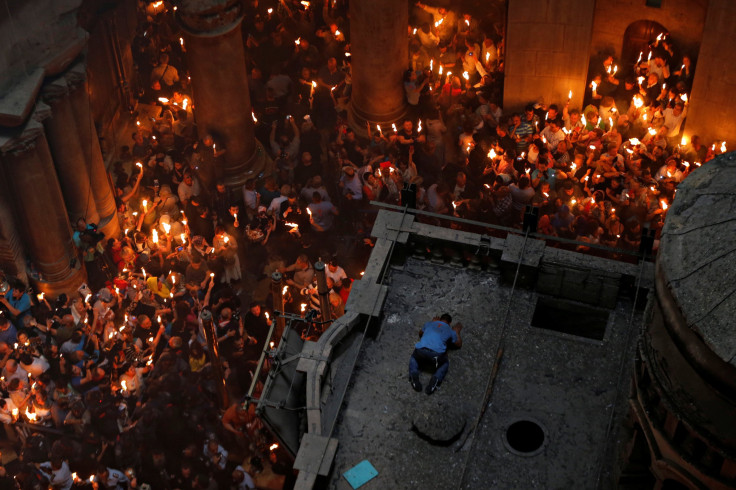Tomb Of Jesus Found: How Did Christ Die? What Christians, Jews, Muslims Believe About His Death

The potential revelation of Jesus Christ’s tomb last week has brought questions of faith, religious history and the different and intersecting beliefs of Christians, Muslims and Jews into light.
Researchers and archeologists from the National Technical University of Athens working at the Church of the Holy Sepulchre in Jerusalem’s Old City removed from the site Wednesday a huge marble cladding with a cross engraved on top and believe it could be Christ’s resting place, National Geographic reported.
The history of the church fueled their deductions. It was built in the fourth century under orders by the first Christian emperor Constantine, who removed a temple constructed to honor the Roman goddess Venus, according to Smithsonian. Researchers believe it's possible the marble cladding hadn’t been removed since 1555, and that the tomb has remained largely intact despite the potential passing of millennia.
While Christian pilgrims will likely rejoice and flock to the site, it’s important to note that Christ is also honored and respected in Judaism and Islam, along with varying beliefs about his life and role in history.
Christians believe Jesus of Nazareth was born by virgin birth by his mother Mary, and after spreading his message was crucified by the Romans some 2,000 years ago. His body was then removed from the cross and placed in a tomb, and three days later Christians believe he rose from the dead, displaced the massive rock standing at his tomb’s entrance and ascended to heaven to rest on God’s hand.
Muslims, though they revere Christ, have a different interpretation of the events. The Quran, Islam’s holiest text, stresses that Christ was born from virgin birth to Mary, and performed miracles, but also that Christ was not crucified. Rather, Islam teaches Christ’s likeness was switched with that of another man who was actually crucified by the Romans. Christ then ascended directly to heaven.
Jews, on the other hand, do not consider Christ to have been the Son of God, as Christians believe. Many Jews also don’t believe, unlike Christians, that Jesus was the messiah sent by God to save the world, but some do.
© Copyright IBTimes 2024. All rights reserved.











